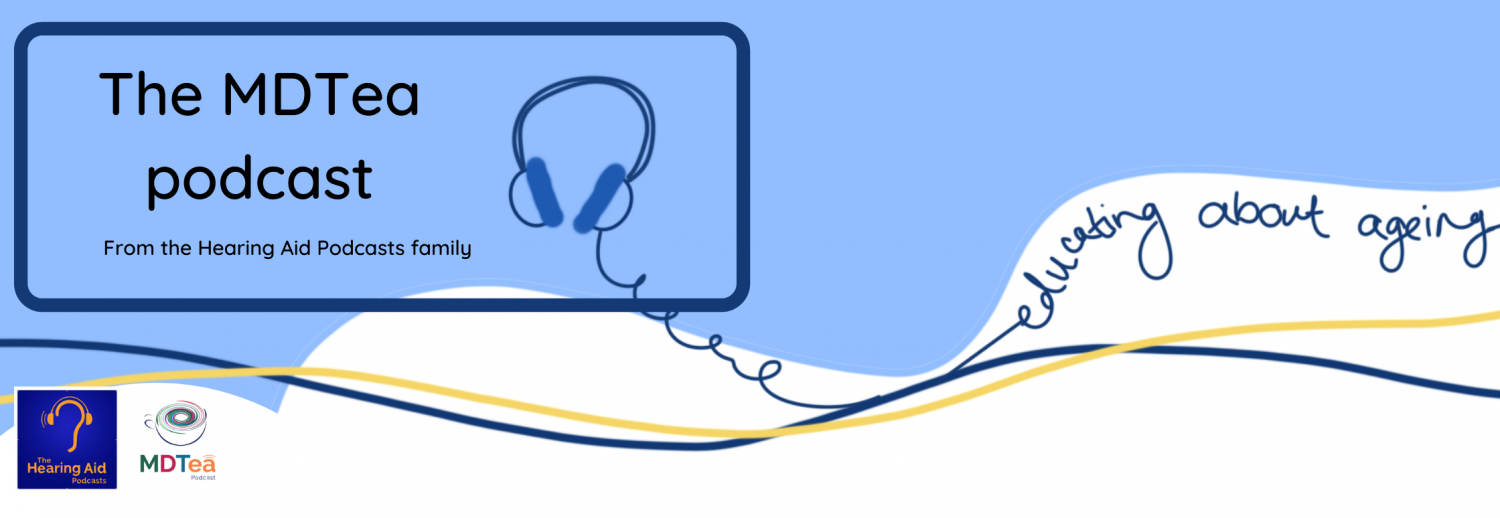12.1 - Reablement
Presented by: Iain Wilkinson, Jo Preston, Stephen Collins
Special Guests: Priscila Albuquerque and Jody Resuggan
Broadcast date: 26th July 2022
Learning Outcomes
Knowledge:
- To understand what community reablement involves, and how it helps assist people in their rehabilitation and recovery following discharge from hospital.
- To know the roles played by different healthcare professionals, councils and charitable organisations in providing this short-term care at home.
- To recognise how reablement services aim to allow a patient to take the lead in terms of regaining their independence and working towards being able to accomplish tasks which are meaningful and important to them.
Skills:
- To learn the different tasks that reablement services carry out with a patient on returning home from hospital, and how these aim to promote independence.
- To understand the teams and professionals we might need to refer to when we’re sending someone home from hospital with plans for community reablement in place.
Attitudes:
- To gain an appreciation for the role played by community healthcare workers in completing the work that has been started by the in-hospital team, and seeing both in-hospital and out-of-hospital care as one continuous and cooperative process.
- To see what research still needs to be done into the concept of reablement, and how these services could be improved and streamlined even further in the future.

Paper of the Week
Gustafsson et al, Working with short-term goal-directed reablement with older adults: Strengthened by a collaborative approach, Nordic Journal of Nursing Research (2019), https://journals.sagepub.com/doi/abs/10.1177/2057158519850974
Key Learning Points about reablement
Reablement:
– Is time-limited short-term support, usually for up to 6 weeks
– Leads to improved health and wellbeing
– Uses a strengths-based, person-centred approach
– Aims to enable timely discharge from hospital or enable an individual to remain living at home where possible
– Focuses on achieving outcomes rather than completing care tasks
– Aims to promote wellbeing, autonomy, independence and choice
– Is determined by the short and long-term outcomes identified by the person
– Aims to help reduce or eliminate the need for future care services.
(Social Care Institute for Excellence, Feb 2020, https://www.scie.org.uk/reablement/what-is/principles-of-reablement)

How might reablement help Jean?
Someone like our patient, Jean, with an underlying dementia – it’s important that we think through what goals she might have. We would need to ask ourselves a few questions, to consider how reablement might help her.
- What was her baseline functional status before admission?
- How can we help her return to that, or as close to that as possible?
- What daily activities are meaningful to her, and how can we help her do those?
- Does she have adequate support from family, friends and community groups?
- If not, can we help provide additional support?
- And could we link her up with any community groups that might help her remain independent, safe and supported in a social context?
Social Media this week
Jo: The Loneliness Network (https://bit.ly/3PFeZ00) have been working alongside a local primary school in Ballymena, NI, and have started delivering letters from pupils to older care home residents. One resident commented, “Any time I see these letters coming from the school, it lets me and the other people in here feel like they’re being well and truly thought about.”
Curriculum Mapping
NHS Key Skills Framework
Core
Develop and maintain communication with people on complex matters, issues and ideas and/or in complex situations
Health and Wellbeing
Plan, deliver and evaluate interventions and/or treatments
Prepare and supply specialised products
Foundation Curriculum
Year One and Year Two
1.2 Patient centred care
Works with patients and colleagues to develop individual care plans
2.7 Works effectively as a team member
Acts as a member of the multidisciplinary professional team by supporting, respecting and being receptive to the views of other healthcare professionals
3.10 Recognises, assesses and manages patients with long-term conditions
Formulates individual patient management plan based on assessment of frailty as well as clinical need
GP Training Curriculum
Communication and consultation
Have appropriate communication skills for counselling, teaching and treating patients, their families and carers, and recognising the difficulties of communicating with older patients
Making decisions
Recognise the importance of a problem-based approach, taking in the ‘big picture’, rather than a disease-based approach to the care of older people, who often have complex physical, psychological and social problems
Clinical management
Know how to access support services for older patients, e.g. podiatry, visual and hearing aids, immobility and walking aids, meals on wheels, home care services
Ensure that the provision of care promotes the patient’s sense of identity and personal dignity, and that the patient is not discriminated against as a result of their age
Core Medical Trainee
- Common competencies:
Managing patient conditions and promoting patient self-care
Outline the concept of quality of life and how it can be measured
- Geriatric medicine competencies:
Understand the factors which influence health – psychological, biological, social, cultural and economic especially work and poverty
Internal Medicine Training Curriculum
Generic CiP3:
Communicates effectively and is able to share decision making, while maintaining appropriate situational awareness, professional behaviour and professional judgement
Geriatrics and Higher Specialty Training Curriculum
- Rehabilitation and Multidisciplinary Team Working
Principles of rehabilitation and comprehensive assessment
Roles and expertise of different members of interdisciplinary team
Reference List
Age UK Factsheet 76, Intermediate Care and Reablement (May 2022), https://www.ageuk.org.uk/globalassets/age-uk/documents/factsheets/fs76_intermediate_care_and_reablement_fcs.pdf
Aspinal et al, New horizons: reablement- supporting older people towards independence, Age and Ageing (2016), https://academic.oup.com/ageing/article/45/5/574/1712465
CPD Online College, What is reablement? (May 2022), https://cpdonline.co.uk/knowledge-base/care/what-is-reablement/
Legg, Lynn et al, A systematic review of the evidence on home care reablement services, Clinical Rehabilitation (2016), https://pubmed.ncbi.nlm.nih.gov/26374423/
Lilleheie et al, Informal caregivers’ views on the quality of healthcare services provided to older patients aged 80 or more in the hospital and 30 days after discharge, BMC Geriatrics (2020), https://link.springer.com/article/10.1186/s12877-020-1488-1
NICE Guidelines: Intermediate care including reablement (Sept 2017), https://www.nice.org.uk/guidance/ng74/chapter/Recommendations-for-research
